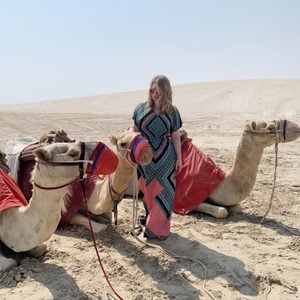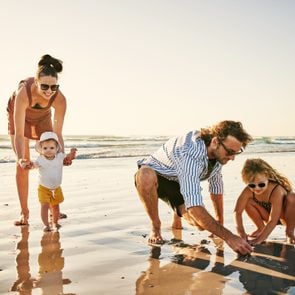I’ve Been to Every Country in the World—Here’s How It Made Me Wiser
Updated: Feb. 16, 2024
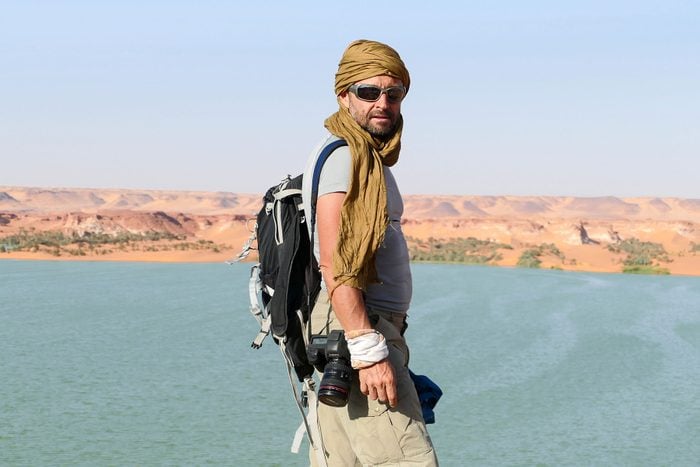
While very few people are able to travel the world quite like this, these lessons can change your perspective in some important ways
The world is made up of 193 countries, and I have visited them all. I believe that adventure begins where the familiar ends—a city you’re visiting for the first time, a path you’ve never followed before, a mountain you’ve never climbed, a country whose language you don’t speak and whose traditions you don’t know. And there’s nothing like the curiosity mingled with surprise and wonder that results from these new experiences.
As I was working on a book about traveling to all these countries, I started reliving some of my journeys. At one point, I had to stop writing because I became overwhelmed by the memories flooding back to me. After so many years of intense travel, I realized just how many adventures I had lived, how many beautiful places I had seen and how many wonderful people I had met. There I was, sitting behind my laptop with goosebumps all over my arms and tears of thankfulness in my eyes. After having been on the move for so long, it was time for reflection.
One of the most fundamental lessons I’ve learned? The importance of sharing. And that’s exactly what I’m going to do here. Most people aren’t able to travel as extensively as I have, but I can take them on a virtual tour of sorts and give them a little glimpse into the wisdom I’ve gained through my travels. Here are 10 of the most important things I’ve learned on my travels—about the world and the people living in it, including myself.
Get Reader’s Digest’s Read Up newsletter for more travel, tech, cleaning, humor and fun facts all week long.
Get rid of your prejudices
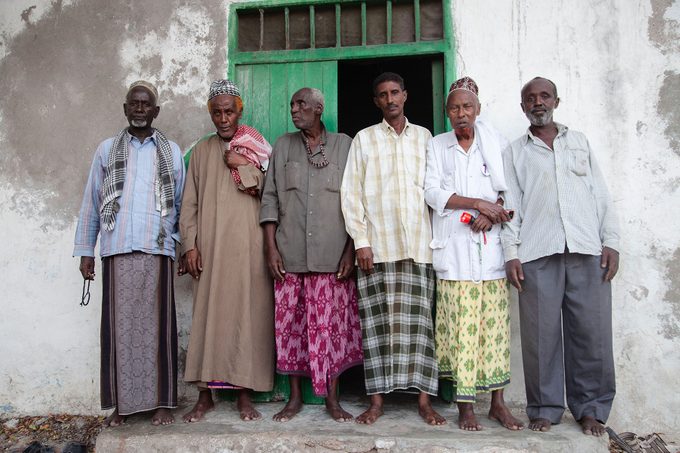
Even if you haven’t been to a place, chances are you’ve heard or read stories about it. The challenge of the traveler is to leave preconceived notions behind and arrive with a fresh, open mind. Then you will be able to see the place for what it really is instead of looking for confirmations of stereotypes.
I dreaded going to Mogadishu, Somalia, but I knew if I wanted to achieve my goal of visiting every country in the world, I would have to go there. I also knew the country had been unstable for several decades, with regular attacks wreaking havoc on innocent people. When I arrived at Mogadishu airport, I was embraced by my guide. We toured the city, and he showed me the destruction that civil war had caused and the ruins of what once had been beautiful Italian buildings. I was invited for a chat and tea by men in the street. I played football with a few guys on the city beach.
While looking for the old mosque of the city, one of the oldest in Africa, I asked a few older men under a tree where to find it. It turned out to be around the corner, but it was closed. They sent a small boy to find the imam who ran it, and he proudly showed me his mosque. He was visibly touched by my effort to visit this historic temple.
Yes, I was escorted by four armed guards during my trip, and yes, I saw a lot of destruction, as well as refugees living in dire conditions. But I also felt welcome, and I felt the incredible energy of resilient people eager to build a better future. When I left, I realized that my image of the country had greatly changed.
Listen to your heart
When we have to make a decision, we generally weigh our options in a logical way. While it is good to listen to our brains, it is equally important to take our gut feelings into account. In my travels, I have often chosen to do something because my intuition told me to do it, not because it seemed like the best decision in a rational way. These situations have involved choices where courage was required, like quitting a well-paying job in a promising IT career to travel or setting my goal to visit every country on Earth, even though my government told me to stay away from some of them. While people close to me didn’t understand my decisions, these choices were among the best I ever made, and they changed my life for the better.
Lead with kindness and humor
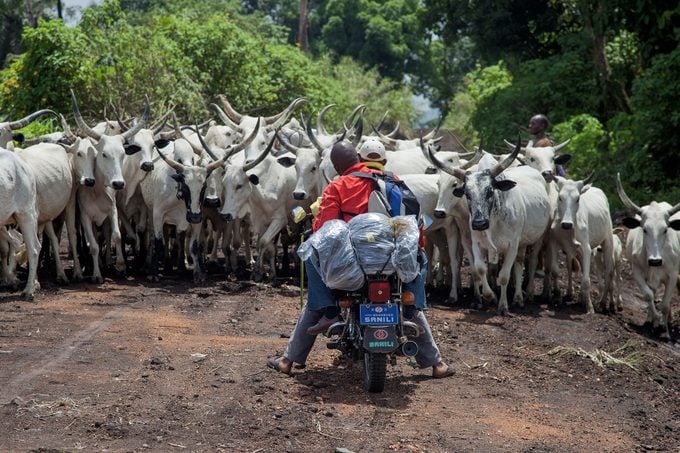
Traveling, by definition, means meeting people from different backgrounds and cultures. You inevitably meet people who do and say things you would never do or say yourself, and on the flip side, people in the country you’re visiting might not be used to foreigners or know how to deal with them. They might have a preconception about you, the stranger. (See above about stereotypes!)
The key is to arrive with an open mind. Be kind and modest, smile and try to connect with the people you’re dealing with. By being human and accessible, most people will open up to you, and you’ll likely receive kindness in return. If the opportunity presents itself, try to make an innocent joke—laughter is a universal icebreaker.
When I arrived at a checkpoint in the middle of the Cameroonian jungle (in Africa) on the back of a motorbike, an officer stopped me. I’d had my share of greedy officials fishing for bribes and was tired of it. Still, I shook hands and asked what he wanted. He started by saying that I should pay money if I wanted to proceed. I pointed at the dusty motorbike I was driving, my worn backpack and then my skin, and said, “You are assuming I am rich because I have white skin … but would a rich person really travel like this?” He laughed, shook my hand again, gave me a pat on my shoulder and wished me a safe trip.
Embrace the similarities
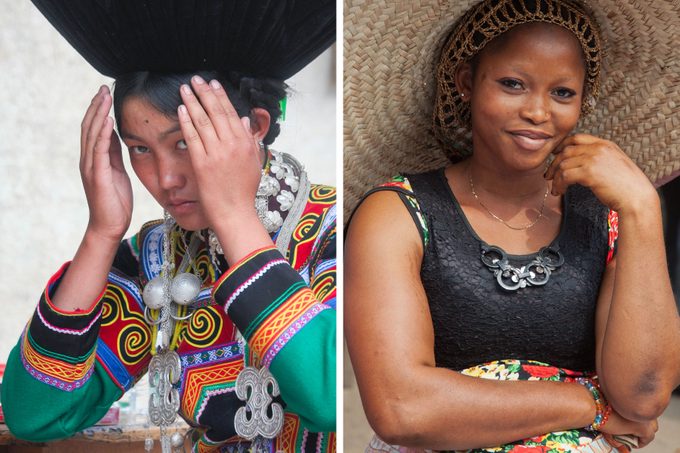
We live in an incredibly diverse world. Even in my own small country (the Netherlands), there are quite a few dialects. Of course, these differences are precisely what makes travel so fascinating. But I have come to realize that we are much more similar than we think. We all want to be healthy, we all want the best for our kids and we all want to have good meals. At the end of the day, no matter where we’re from, we are all humans sharing the same planet.
It is surprising how many people complain about the weather. And the traffic. Whether you are in New York, Lagos, Bangkok or almost any other big city, people think their traffic is the worst in the world. I’m convinced that if we would look for the things we have in common, we would have a better understanding of one another.
Be grateful
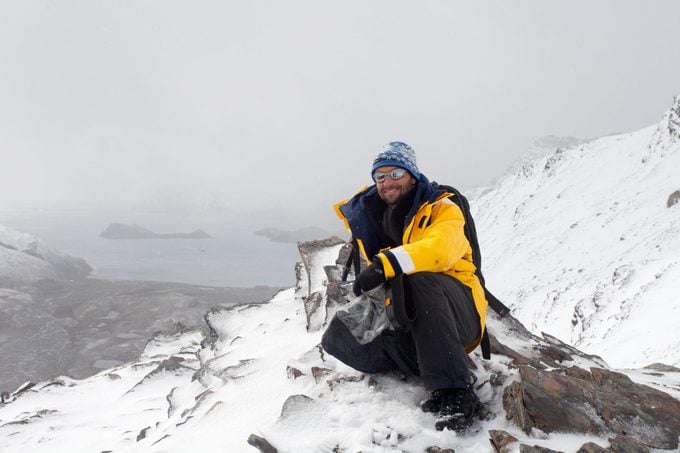
On all my travels, I prefer to take it slow. I take public transportation where possible. I often explore cities and the countryside walking or on a bicycle. I eat at local restaurants, and I sleep in modest, local accommodations. This immersion guarantees a better understanding of the life locals live. It also means that I get to meet a lot of people, and there is no better way to begin to grasp a country than to listen to its inhabitants.
One of the things that has struck me most is that even in the poorest countries, people make the best of their lives. They work very hard to make ends meet, hoping for a better life for their children, even when the odds are stacked against them. Rather than complain, they do their best. As a result, I have come to appreciate my life and what I have. It doesn’t make sense to complain. If something isn’t right, you can decide to improve it, fight it or forget about it.
This lesson has also made me see the beauty in small things. I still get thrilled when I witness a spectacular sunset, a brilliant rainbow or a ray of sunlight seeping through gaps between enormous clouds. There is so much to be grateful for, and if you acknowledge it, it brings a lot of positivity into your life.
Be generous, and share what you can
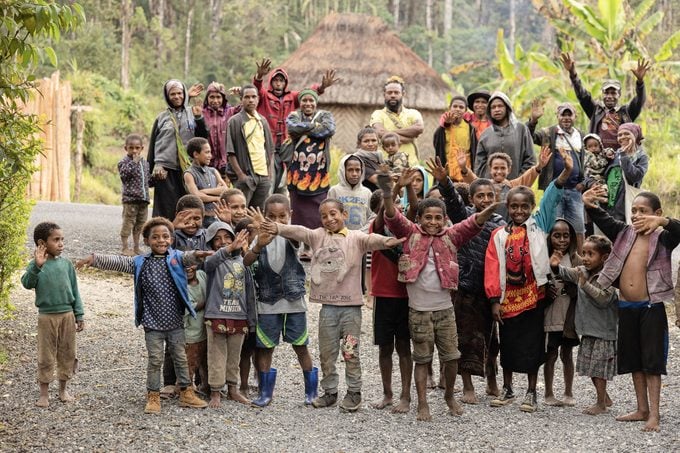
One of the things that touches me most on my travels is how people welcome me to their country. People have gone out of their way to help me, invited me to their homes, made sure I was safe, gave me a drink and prepared food for me. Over the years, I’ve realized that those who have less often share more.
When I was traveling in Sudan, Africa, on a local bus with my travel partner, I noticed an old woman and her son. It was obvious that they were poor from the ragged clothes they wore and the bag they carried, which was full of holes. The woman did not seem to see much, and one of her son’s feet was distorted, and he had trouble walking.
Whenever we stopped, we helped them get out and back onto the bus. Unfortunately, we couldn’t talk to them more than a few words. We felt sympathy for them and were considering what we could give them before we reached our destination. Then, unexpectedly, the bus stopped, and they got off. It all went too fast, and we didn’t manage to give them anything. When we reached our destination and went to pay our fare, the driver told us that it had already been paid. It turned out that the frail mother had given him the money for our fares when she got off with her son. We looked at each other, tears welling up in our eyes.
These many acts of generosity have made me a more generous person too. Giving not only makes the receiver happy—it also makes you feel good.
Travel sustainably
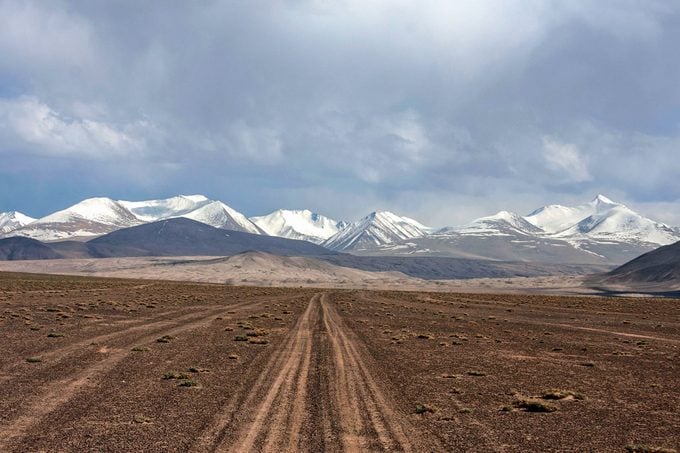
A rapidly increasing number of people have the means to travel, and more destinations are within reach of potentially millions of visitors. In many ways, this is good. Travel can lead to mutual understanding and a deeper sense of international awareness. However, I’ve been noticing more and more lately how the influx of tourism can have a negative impact on local communities—for example, through pollution and rising prices—and the area on a social and cultural level. Moreover, tourist money often doesn’t go to the local economy but to big international brands (think: hotels, tour operators, cruise companies and the like).
Last year, I visited the traditional Gerewol Festival in Niger, Africa, where young people from nomadic tribes hope to find a future spouse. I saw foreigners poke their big lenses into kids’ faces without bothering to ask and fly drones in the middle of the event to capture the image of young men all painted for the occasion, just to have the best shot. It made me feel awful, like the tourists thought they were in a zoo looking at animals instead of respectfully watching the nomads perform their age-old traditions.
I am convinced that in order to keep travel attractive in the long run for both travelers and host countries alike, measures will have to be taken. Some popular destinations are already trying to limit the number of visitors. But I hope people will become more conscious and book their next trip with local operators, as well as think of the impact their journeys will have on the places they are visiting—not to mention be respectful of the people they encounter.
Know who to trust
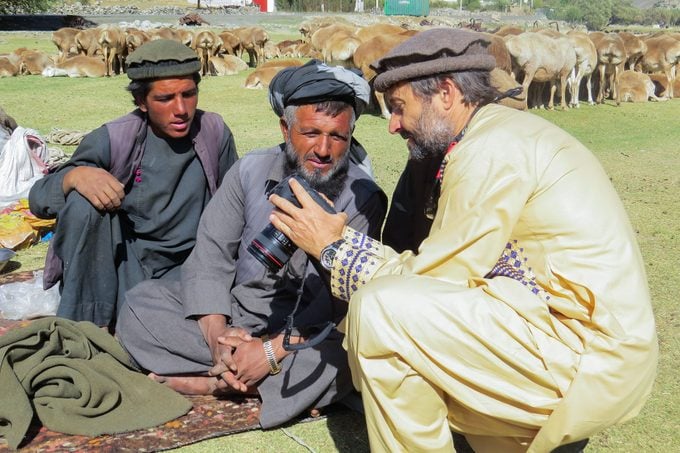
One of the main concerns when you travel is whether or not you can trust strangers. How do you know if they will stick to their word? Travel quickly teaches you what to look for in a person. It teaches you to listen carefully to what someone says and how they say it, and to listen to your intuition. Trusting your intuition is one of the most helpful things you can do in travel (and life, in general).
When I was 19, I set out on my very first solo trip. I traveled by train through Western Europe, crossed the Mediterranean and ended up in Morocco. There, I was besieged by young men who claimed to want to practice English. I ignored them. I had traveled around three continents with my parents and thought I was an experienced traveler. Ah, the innocent overestimation of youngsters! The guys continued to follow me until I gave in. Over the next few days, they took me out for tea, for walks through Tanger, for talks about the things young guys talk about. They invited me to a traditional party in their village. And then, suddenly, they asked me how many drugs I wanted to buy. None, I told them. They turned aggressive, claiming I had wasted their time and that I had to pay them compensation for it.
I managed to negotiate the amount down, but when I left, I felt empty. They had broken my trust, and I considered that unforgivable. It took a while before I trusted people again. It also taught me to listen and look carefully, to stand my ground and to walk out of situations that didn’t feel good. Nothing like this ever happened to me again. I still want to trust strangers, but I will always hold a healthy dose of skepticism.
Enjoy life now
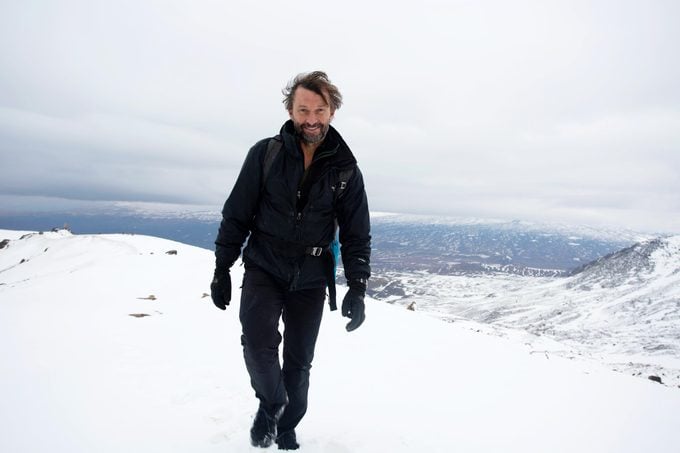
When I was 23 years old, I lived in Lomé, Togo (Africa), for two months. After a while, I started feeling weaker and weaker, and one morning, I couldn’t get my head off my pillow. I vaguely realized that people carried me to a car and put me in the back seat, and a little later, I was lying on a bed in a small clinic. I felt a minor shot of pain in my index finger. Faraway voices were talking excitedly, and one word that came back several times was palu. I couldn’t have cared less about the name of whatever was tearing me down, and I didn’t care if I ever woke up again—I just wanted to surrender to the deepest sleep ever.
Miraculously, a few days later, I walked out of the clinic. The doctors told me they had never seen a more severe case of malaria (palu in French) and that they would not have been able to save me if I had arrived a few hours later. It took me several months to fully recover.
This was one of the defining moments in my life. I realized that even though I was young and fit, life was very fragile. You can’t take anything for granted, and you simply don’t know how long you will be on our beautiful planet. This realization instilled a kind of urgency in me—a deep desire to enjoy life, explore the world and make the most out of it. Knowing that I have lived my life fully gives me some peace of mind whenever I undertake a risky journey.
Invest in experiences instead of things
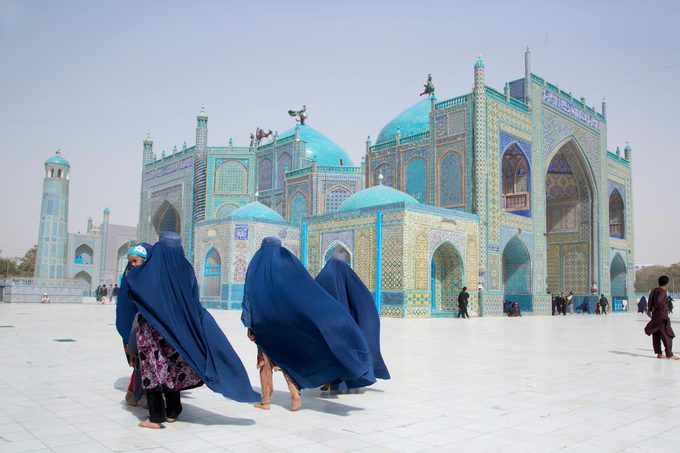
“Are you a millionaire?” “How do you pay for all your travel?” These are a couple of the questions I regularly get. While travel doesn’t have to cost a fortune (it largely depends on how, and where, you travel), I certainly have spent a good amount of money on it over the years. But it was money well spent. I can look back on so many fantastic memories, have learned so much from so many people and have been thrilled, awed and blown away by so many places. This is something that no one can ever take away from me—and it’s something I will cherish for the rest of my life.
I would wholeheartedly advise anyone to invest in experiences. They will enrich your life in a purer, deeper and longer-lasting way than any new gadget, car or anything else ever will.
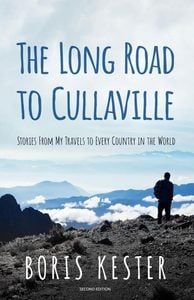
Boris Kester is an author, fearless adventurer, polyglot, avid sportsman, programmer and political scientist. He is one of about 250 people worldwide to have traveled to every country in the world. According to the authoritative travel site NomadMania.com, Boris ranks among the best-traveled people on the planet. He is the author of The Long Road to Cullaville: Stories from My Travels to Every Country in the World. He shares his travel photos and stories on TravelAdventures.org. Learn more at BorisKester.com.
